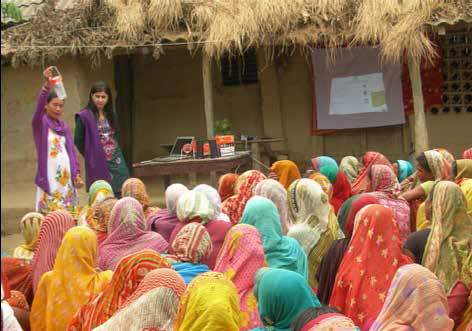
Description of the project: EG builds women-led clean energy distribution networks that deliver life improving products (e.g. solar lanterns and home systems; efficient appliances) to energy poor rural communities. Targeting rural women who own and run their own business, or work as door-to-door sales agents, EG builds their capacity through training and business support. Women are trained on how to run successful businesses, distribute clean energy solutions, and become leaders in their communities. In 2012, their first woman-led energy business in Nepal was set up. Today, their network includes 20 women-led businesses, in 15 districts, with 270 sales agents. Since 2017 EG has also started a pilot project in Myanmar.
Climate impact: As of June, EG’s network has displaced 12,409 CO2 and provided cleaner, safer homes to 284,640 rural customers. EG’s model is a market-based, sustainable solution for human and environmental suffering caused by climate change. They provide affordable energy alternatives and sanitary water upgrades. The project mitigates climate change, as it shifts the rural households’ consumption of fossil fuels to sustainable energy.
Gender impact: EG works with marginalized women, such as indigenous and Dalit (untouchable) women, with limited education. 99% of CEOs and sales agents start off living below the poverty line; just one year of working for EG brings them above it. Many women go back to school or start their own ventures afterwards. This year, because of their public leadership of social businesses, over half of the entrepreneurs in EG’s network were nominated in Nepal’s national elections and many won seats in local governments.
Scalability / replicability: Leveraging a woman-to-woman sales dynamic, by 2018 EG aims to have employed 1,100 women and provided energy access to 1,2 million people. The model’s educational part can be replicated and EG also provides ongoing support to the women-led distribution networks. Their model’s two prong approach (women’s social and economic empowerment; reduction of fossil fuels) to development can be implemented and scaled up for the estimated 1,2 billion people globally access to reliable electricity.